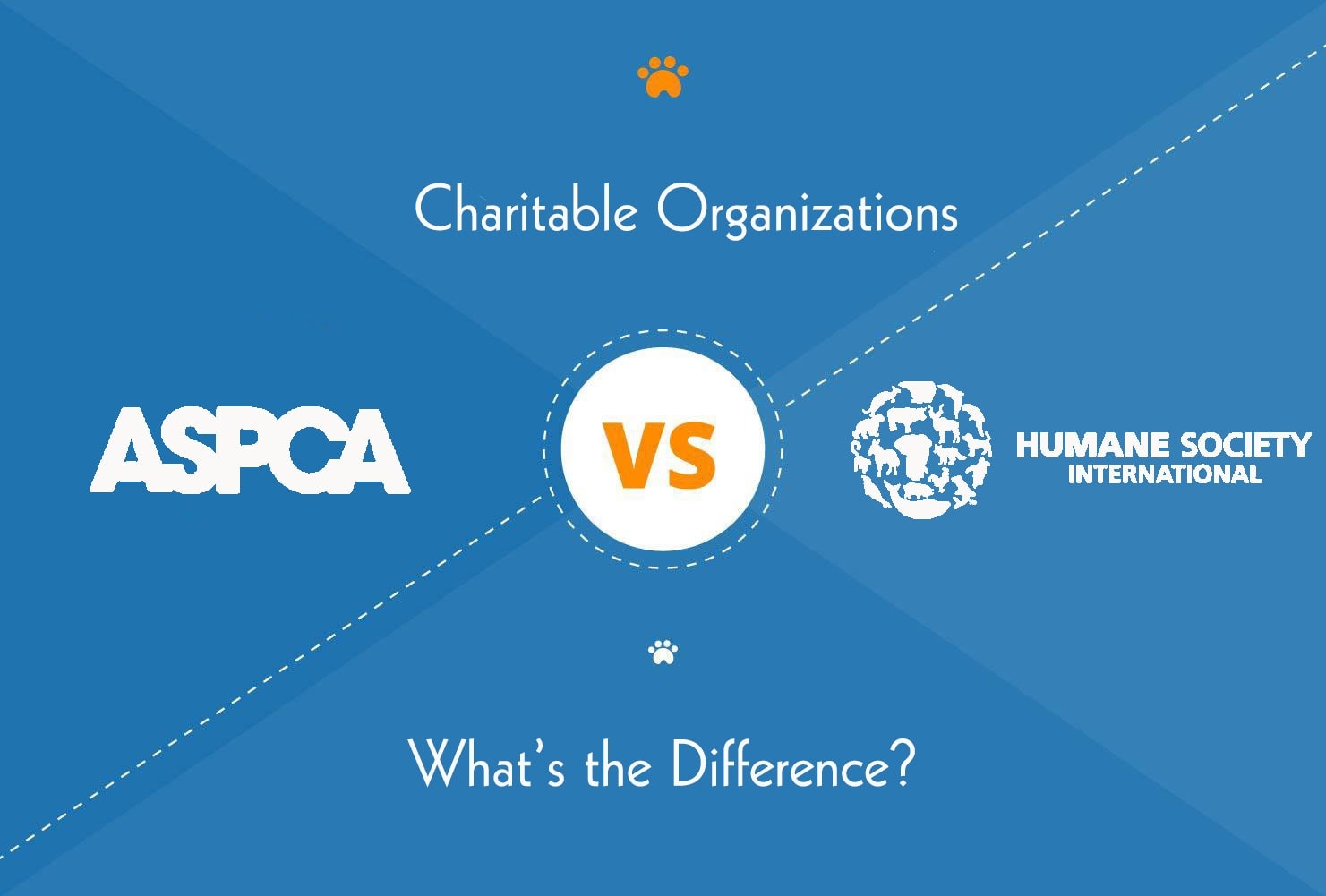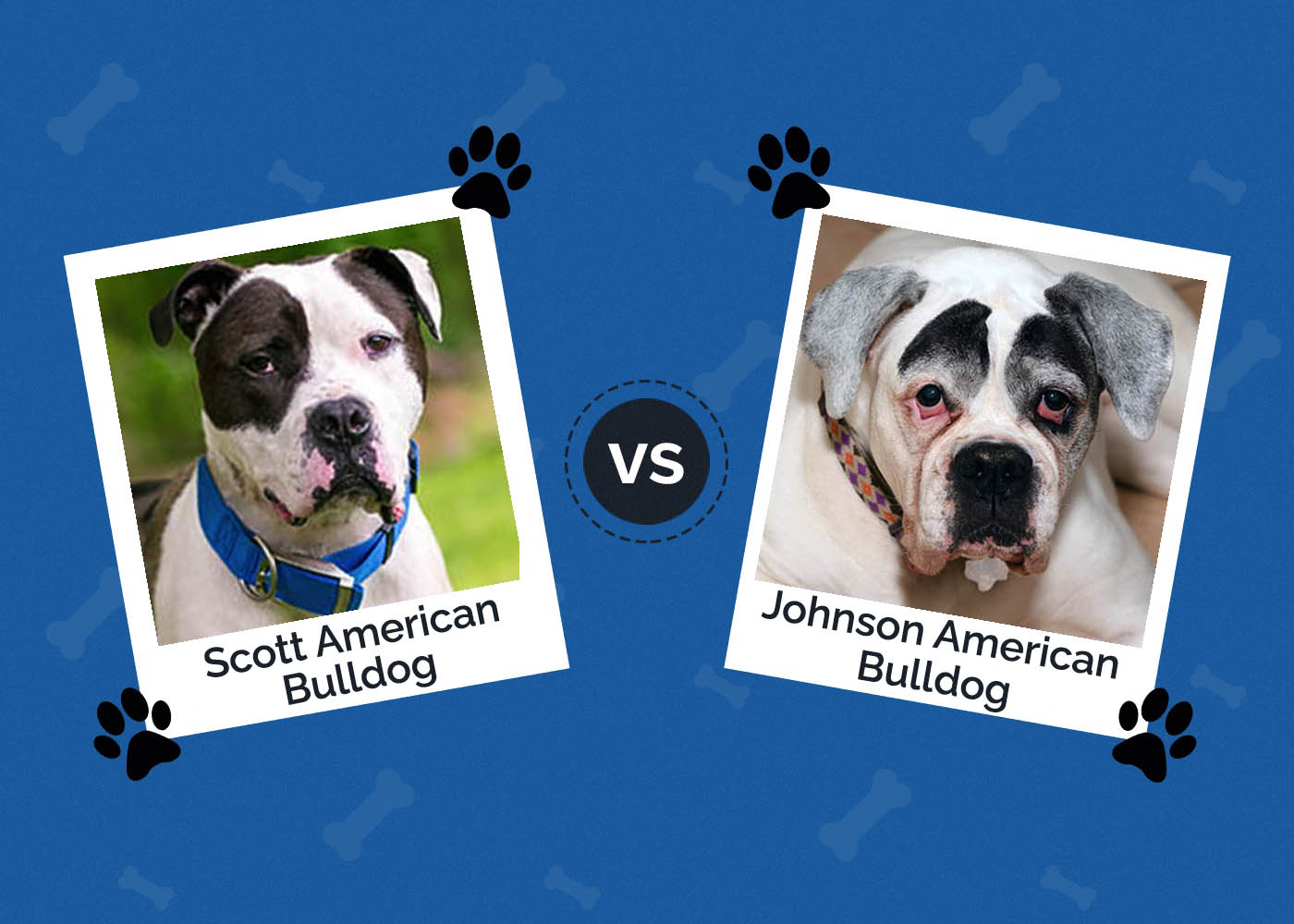ASPCA vs. Humane Society: What’s the Difference?

Updated on

If you have a soft spot in your heart for animals, it’s only natural to want to donate your time and money to causes that help them.
Doing so will bring you in contact with two of the biggest animal-based charitable organizations in America: the American Society for the Prevention of Cruelty to Animals (ASPCA) and the Humane Society (HSU).
These two groups have similar aims, and they often work together on issues that are important to the well-being of animals everywhere. However, they’re not the same thing, and in the article below, we highlight key differences between the two organizations.
The ASPCA: An Overview
The ASPCA is the oldest animal welfare organization in the United States, dating all the way back to 1866. It was founded by a New Yorker named Henry Bergh, and it was modeled after its British cousin, the Royal Society for the Prevention of Cruelty to Animals.
The organization was founded to combat animal cruelty; at the time of its inception, notable causes included ending dog- and cockfighting, as well as educating the public on the horrific treatment of animals in slaughterhouses.
The group was instrumental in getting the first animal anti-cruelty law passed in 1866, and it was granted the ability to enforce that law as well. By the time Bergh died in 1888, all but one state had enacted an animal anti-cruelty law of some sort.
Today, while its stated mission is still to end cruelty to animals, the ASPCA operates a variety of charitable endeavors. These include everything from running no-kill shelters to providing animal-assisted therapy; a large portion of their time and funding is spent on outreach and education as well.
Providing Healthcare for Animals
One of the ASPCA’s foremost activities is providing healthcare for animals of all shapes and sizes. In fact, the ASPCA founded the first animal hospitals in 1912 and has placed a premium on medical care ever since.
It’s been directly responsible for many innovations in pet care as well. It pioneered the use of anesthesia on pets, incorporated the use of pathology and radiography programs, and performed groundbreaking surgeries.
It offers a variety of resources for pet parents, including a 24-hour poison control line, low-cost spay and neuter clinics, and support services for grieving owners. It also partners with various organizations to offer reasonably-priced services, like pet insurance.
Disaster Relief
The ASPCA is one of the first and most prominent organizations to hit ground zero after disasters occur, and it offers all manner of services to affected owners and their pets.
These services include reuniting lost pets with their owners, providing temporary shelter to displaced pets, and offering medical care to animals affected by the disaster.
Law Enforcement Efforts
The ASPCA is primarily concerned with the humane treatment of companion animals rather than those used for agricultural purposes. It often partners with law enforcement to target those who abuse and neglect their pets.
This can mean finding and breaking up dog fighting rings, investigating suspicious animal deaths, and ensuring that abused animals are properly rehomed.
In New York, the ASPCA has actually been granted the power to enforce existing animal anti-cruelty laws.
Policy, Education, and Outreach Efforts
The ASPCA isn’t as involved with shaping policy as some other animal welfare organizations, but it does often work with local governments to find euthanasia-free solutions to animal control problems.
It works to educate businesses on how to make and promote cruelty-free products. It also helps train law enforcement agencies on the proper way to recognize and enforce anti-cruelty legislation.
Much of its public outreach is devoted to reducing the shelter population. Its efforts include persuading prospective animal owners to adopt rather than shop, and it operates multiple no-kill shelters across the country. It’s even developed a program to pair potential owners with pets that would make a good match for them.
- Oldest animal welfare organization in the United States
- Strong focus on providing innovative medical treatment for animals
- Instrumental in enforcing existing animal welfare laws
- Focuses on companion animals at the expense of farm animals
- Not as active in legislation as other organizations
The Humane Society: An Overview
The HSU isn’t quite as old as the ASPCA, as its origins date back to only 1954. In fact, the HSU likely wouldn’t exist at all if it weren’t for the ASPCA.
From the time of the ASPCA’s founding through the first half of the 20th century, dozens of animal welfare groups sprang up. These organizations had varying degrees of success, and it soon became clear that their efforts would be amplified if they were able to join forces.
The HSU was the answer to that problem. It was founded to present a unified voice to the country on the issues of animal welfare, especially often neglected animals, like those confined to farms and slaughterhouses.
Much of the organization’s early philosophy was influenced by Albert Schweitzer, the Nobel Peace Prize winner who famously advocated for compassion for every living being. When the environmental movement began to develop in subsequent years, the HSU adopted many of the beliefs associated with it.
Unlike the ASPCA, the HSU doesn’t offer services or interact with local agencies. Its aims are broader, and its focus is more centered on lobbying for ethical legislation.
Humane Slaughter Legislation
One of the HSU’s earliest victories was the passage of the Humane Methods of Slaughter Act in 1958. The bill guaranteed humane slaughter methods at slaughterhouses and established the federal government’s ability to inspect and regulate those same slaughterhouses.
Animal Experimentation
Using animals to test the ingredients in all sorts of consumer goods was extremely common in the post-WWII era. Many biomedical companies were especially bad about using shelter animals for research, even over the objections of smaller animal welfare organizations.
The HSU didn’t help pass any legislation to end this practice, but it did plant investigators in various laboratories to document the abuses inherent within it. By the 1990s, due in part to the immense pressure created by the HSU and similar organizations, many actors in the scientific and medical communities began voluntarily ending these practices.
Animal Shelters
In the years immediately following its founding, the HSU operated animal shelters in a variety of cities. These shelters were never no-kill, but the HSU led the drive to switch to humane euthanasia methods.
The HSU was the driving force between most shelters in the U.S. switching to sodium pentobarbital injections for animal euthanasia in the 1980s over the use of gas chambers and decompression.
The HSU no longer operates any animal shelters, but it’s definitely left a lasting footprint on the way they operate.
Policy, Education, and Outreach Efforts
While the ASPCA is directly involved in many on-the-ground efforts to promote animal rights, the HSU is much more active on the legislative level. For example, in 2013 alone, it was instrumental in the passage of over 100 animal protection laws.
The bulk of the HSU’s day-to-day operation involves influencing legislation and informing the public about the issues affecting animals today.
- Fights to protect all animals, including non-companion animals
- Active at the legislative level
- Capable of putting immense pressure on governmental and corporate interests
- Little in the way of on-the-ground efforts to protect animals
- Doesn’t operate animal shelters anymore
To Which Organization Should I Donate?
There’s really no wrong answer to this question, as both are leading the fight to protect animals every day. However, you may have a clear preference depending on what goals you have for your donation.

If you want to donate money to directly improve the lives of animals—especially companion animals like dogs, cats, and horses—then the ASPCA is the better choice. It’s a bottom-up organization, and many of its efforts are focused on directly helping animals in shelters, those affected by disasters, and the like.
However, if you believe that the only hope for lasting change comes from improved regulation and governmental oversight, then the HSU is likely the better choice. It spends more time and money lobbying for improved legislation than the ASPCA does; while these efforts no doubt help improve the lives of individual animals, they have less of a direct impact that it can point to as a result.
If you’re looking to donate your time, it will depend on what you want out of the experience. Volunteering at the ASPCA will be more likely to put you in contact with animals in need, but you may see and experience things that you wish that you could forget.
Volunteering for the HSU is much more likely to include clerical work, since it’s not really a boots-on-the-ground organization. This may not warm the cockles of your heart as much as nursing an injured kitten back to health, but it could create longer-lasting benefits for vulnerable animals.
The ASPCA and HSU: Fighting the Same Important Battles in Different Arenas
If you’re passionate about animal rights, both the ASPCA and the HSU are incredibly worthy of your time, money, and attention. Each organization is devoted to improving the lives of animals.
The ASPCA may have a bit more appeal because it directly intervenes in animals’ lives more, but don’t neglect the important changes that have occurred due to the HSU’s history of effective lobbying on their behalf.
Both groups are fighting the good fight; they’re just doing it in different ways.
Featured Image Credit to: tonyfortku, Pixabay















